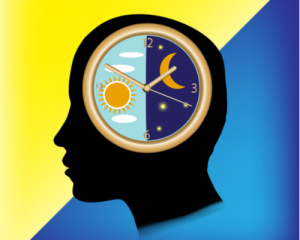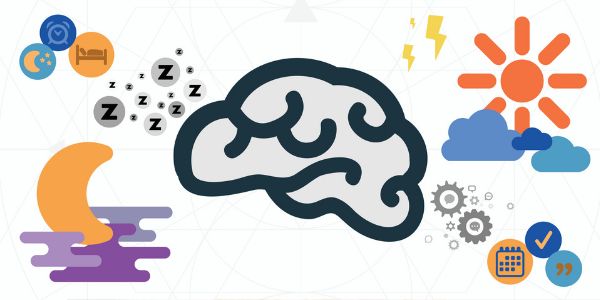Many factors can influence Alzheimer’s disease, but it appears that one such example is someone’s circadian rhythm.
There are few diseases more complex and heartbreaking than Alzheimer’s disease. This disorder—which directly affects six million Americans—is a result of a complex series of physical, sociological and biological challenges. As time moves on, we continue to learn more and more about what can cause Alzheimer’s and what factors can make it worse. An increasing body of research points to the role that your circadian rhythm may play in the diagnosis of this disease.
What Is the Circadian Rhythm?
Your circadian rhythm is essentially your internal clock. More specifically, it is the clock that your body runs by over a 24-hour period.
During the average day, your body expects certain things to occur over certain periods of time. It expects that you will get up around the same time, eat around the same time, engage in the same activities around roughly the same time and go to sleep. Indeed, the sleep-wake portion of this rhythm is absolutely critical towards maintaining your sense of physical and emotional well-being, cognitive capacities and overall health.
Humans’ built-in rhythm should not be disrupted, and this is why some people who have jobs that require shift work often show health problems that are related to these disruptions. Indeed, an array of health problems are emerging that show the damage that disrupting this rhythm can cause. One such example may also be a worsening of Alzheimer’s symptoms and an increased likelihood to get Alzheimer’s.
How Might Your Circadian Rhythm Affect Alzheimer’s?

For example, a 2018 review found that there are absolutely links between this cycle and the development of Alzheimer’s. The same review noted that therapies to assist with these disruptions were scarce, but that the administration of melatonin may prove promising to help regulate someone’s sleep-wake cycle, ensure that the person sleeps adequately and thus lower the odds of developing Alzheimer’s. Melatonin therapy—as well as other novel therapies, like anti-inflammatories—could help reduce Alzheimer’s risk.
A 2015 review took a different approach. It noted that disruptions in someone’s sleep-wake cycle were actually often a symptom of the development of Alzheimer’s, not the other way around. This raised some very important questions, including on the causal relationship between sleep-wake disruptions and the development of Alzheimer’s.
A June 2018 paper attempts to synthesize both of these possibilities by noting that sleep seems to regulate the creation of certain proteins that are tied to the development of Alzheimer’s. As such, it follows that regulating sleep can reduce the risks of developing Alzheimer’s.
What Does This Mean?
As noted above, disruptions of your circadian rhythm can be very problematic for your health, and it appears that these Alzheimer’s-related issues can potentially have an effect as well. If you are already at high risk for developing Alzheimer’s, you may want to think twice before taking a job that can increase your likelihood of disrupting your normal sleep-wake cycle.
More research is clearly needed before more definitive conclusions can be made, but there seems to be a link between disruptions in someone’s circadian rhythm and the development of Alzheimer’s disease.





